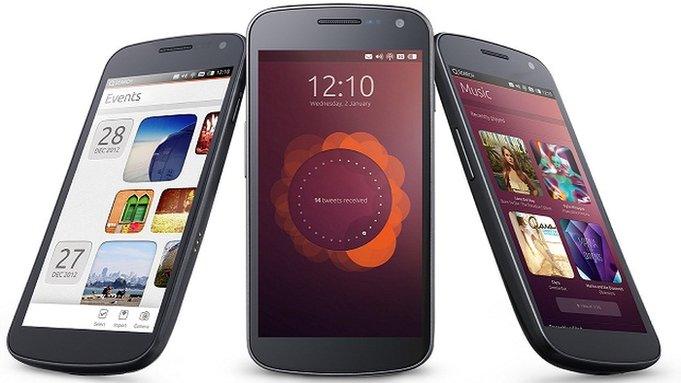Ubuntu Edge smartphone seeks $32m of crowdfunded cash
- Published
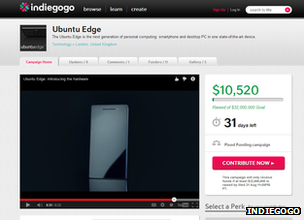
Canonical is hoping to raise the cash via Indiegogo's crowdfunding website
The developer of the Ubuntu operating system has turned to a crowdfunding site in an attempt to launch a handset pre-installed with its software.
London-based Canonical is seeking to raise, external $32m (£20.8m) over the next 30 days to produce 40,000 devices.
To succeed it needs to raise several times more cash than any other crowd-financed project has done before.
However, one market watcher said even if succeeds, the mobile OS would probably still struggle to gain ground.
Canonical has said that if it manages to hit its goal using Indiegogo's website it plans to deliver the phones to qualifying backers by May 2014.
Indiegogo's current funding record is $1,665,380 which was raised by Scanadu Scout, external - a scheme to build a Star Trek-style Tricorder medical scanning device.
Its rival Kickstarter's record is $10,266,845 for the Pebble smart watch, external.
As of Tuesday morning, the Ubuntu Edge phone had attracted just over $3,295,000 worth of pledges, but the terms of the campaign mean Canonical does not receive the cash unless it hits its target.
Premium price
Canonical says Linux-based Ubuntu is different to other smartphone operating systems because it can run the same desktop applications as a PC installed with its software.
Programs look like a standard mobile app when the handset is being used as a standalone device, and then change their user interfaces to that of a desktop application when the phone is docked with a monitor. In addition the OS supports apps written in the HTML5 web language, albeit at slower speeds.
Canonical began offering a version of its system which can be run on a limited number of Android devices in February, and does not charge for the download.
But it has decided that backers need to commit $600 on day one or $830 on the remaining days of the crowdfunding campaign to secure one of its forthcoming Ubuntu Edge handsets. That is roughly double the cost of LG's Nexus 4 mobile, which supports its software.
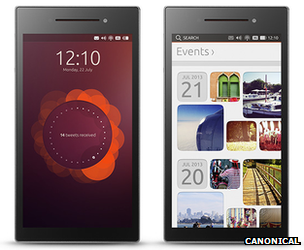
Canonical says the Ubuntu OS is so simple that its handset does not need a home button
Canonical's founder, Mark Shuttleworth, defended the sum saying that, in return, enthusiasts would secure a "Formula 1" device.
"The new handsets will have substantially more Ram [random access memory] than a typical high-end phone," he told the BBC.
"I would describe today's devices as being more useful as a thin client... offloading most of the processing to the cloud.
"What we're interested in is the next generation, giving you enough horsepower to actually have the full desktop experience powered by the phone."
Record attempt
In addition to four gigabytes of Ram, the firm is also promising an above average 128GB of storage and to make the handset's 4.5in (11.5cm) screen out of sapphire crystal - a tough substance already used by the premium Vertu brand. It will also offer an option to boot into Android if desired.
Mr Shuttleworth said that the Ubuntu Edge would be made by an Asian manufacturer which already made handsets for other firms, but declined to name the company.
He added that his firm only expected to break even on the project, but hoped it would stoke wider interest in Ubuntu as Canonical pursued efforts to get other firms to sell devices pre-installed with its software.
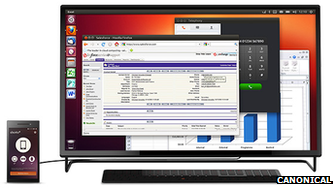
Canonical says the handset would be powerful enough to act as a normal desktop PC
However, he acknowledged that the size of the Indiegogo funding goal meant his firm risked failing to secure any cash.
"We're very sanguine we may not hit the green light level," he said.
"But I think the timing for a record attempt like this is very good - there's a sense the mobile industry has become constrained in its ability to deliver innovation.
"If you're focusing on very high volume markets there's a lot of risk to you in introducing a new technology to a device that you want to sell 40 or 50 million units."
Canonical makes money by charging for support and training for Ubuntu and also plans to take a share of sales from online marketplaces offered by handset makers who adopt its software.
New entrants
Ubuntu is seeking to gain ground in an increasingly crowded smartphone marketplace.
Google's Android and Apple's iOS currently dominate sales well ahead of Blackberry's BB10 and Microsoft's Windows Phone rivals.
Earlier this month, the first phones running Mozilla's Firefox OS also went on sale; Joalla recently started taking pre-orders for handsets running its Sailfish system, based on Nokia's cancelled Meego platform; and Samsung and Intel have just launched a $4m fund to encourage developers to make apps for the forthcoming Tizen system.
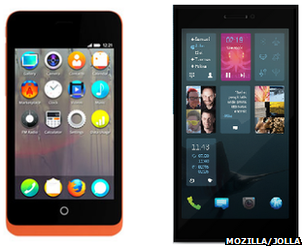
Firefox OS and Sailfish are two other mobile operating systems launching this year
"There's a groundswell of operating systems coming to market," said Nick Dillon, senior analyst at the telecoms consultancy Ovum.
"The challenge for Ubuntu is it needs to offer something unique and compelling.
"Using your phone as your single device is different, but at the moment it seems a niche proposition.
"Ubuntu has been relatively successful in the PC market, but it's not a big consumer brand in the way some of the other big mobile companies - like Blackberry, Nokia and Microsoft are - and even they're having a tough time of it."
Canonical's campaign will run until 21 August.
- Published20 May 2013
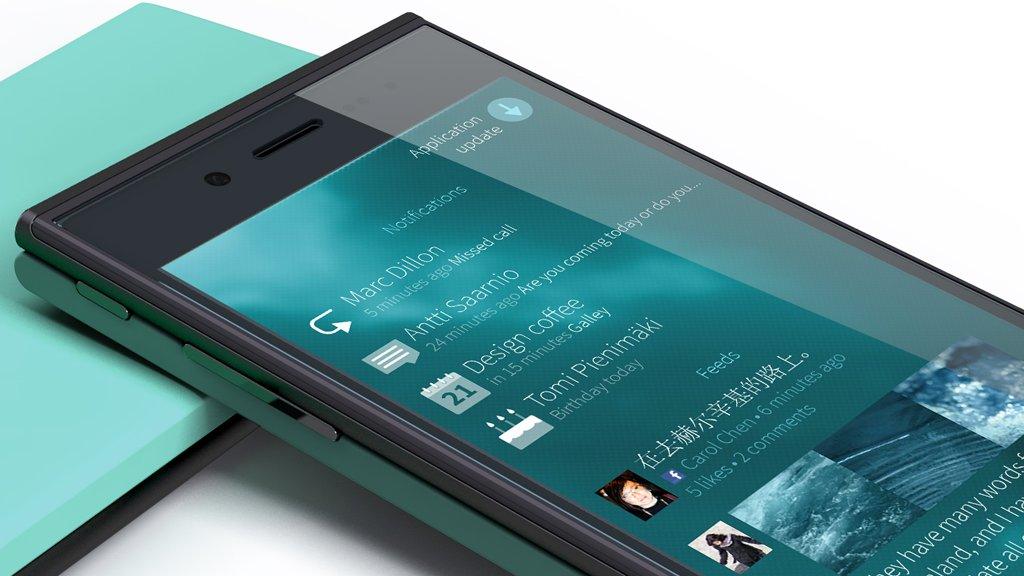
- Published24 February 2013
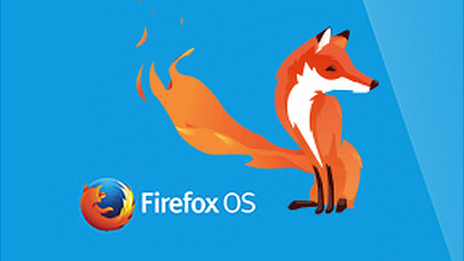
- Published2 January 2013
